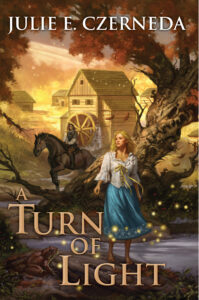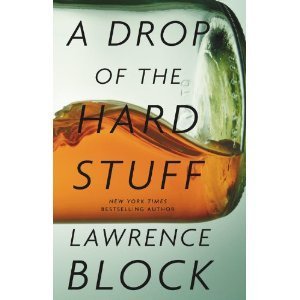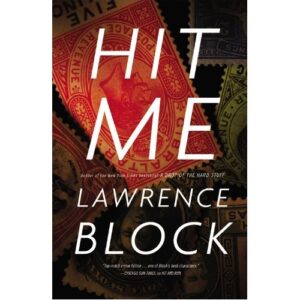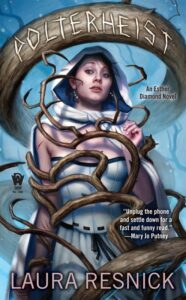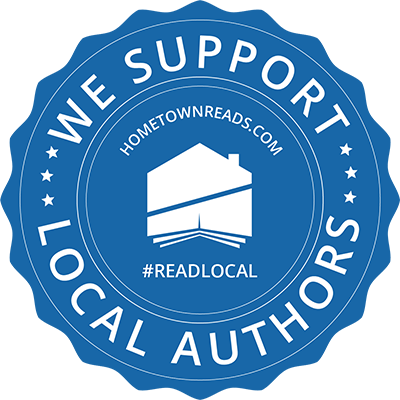I was given Karen’s book, First Draft in 30 Days a few years ago by a friend, and it’s still one of my favorites to guide authors through the novel-writing process. So, recently when I found out that a mutual friend of mine also knew Karen, I was excited to get in touch with her about sharing her wisdom on writing. Please welcome Karen Wiesner to The Editing Essentials!
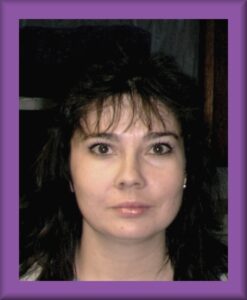 Karen Wiesner is an accomplished author with 96 books published in the past 15 years, which have been nominated for and/or won 125 awards, and has 28 more titles under contract. Her books cover most genres of fiction, children’s books, poetry, and writing reference titles. Her previous writing reference titles focused on e-publishing, book marketing, and setting up a promotional group like her own, Jewels of the Quill, which she founded in 2003. The group produced two award-winning anthologies, edited by Karen and others, per year from 2005-2011. For more information about Karen’s fiction and many series, consult her official companion guide The World of Author Karen Wiesner: A Compendium of Fiction. If you would like to receive her free e-mail newsletter and become eligible to win her monthly book giveaways, visit her websites: http://www.karenwiesner.com or http://www.falconsbend.com .
Karen Wiesner is an accomplished author with 96 books published in the past 15 years, which have been nominated for and/or won 125 awards, and has 28 more titles under contract. Her books cover most genres of fiction, children’s books, poetry, and writing reference titles. Her previous writing reference titles focused on e-publishing, book marketing, and setting up a promotional group like her own, Jewels of the Quill, which she founded in 2003. The group produced two award-winning anthologies, edited by Karen and others, per year from 2005-2011. For more information about Karen’s fiction and many series, consult her official companion guide The World of Author Karen Wiesner: A Compendium of Fiction. If you would like to receive her free e-mail newsletter and become eligible to win her monthly book giveaways, visit her websites: http://www.karenwiesner.com or http://www.falconsbend.com .
WD: What drives you to write more books, whether it’s fiction or non-fiction?
KW: Not writing simply isn’t an option for me. I have to. It’s as vital as breathing. Even if I’d never gotten published, I would always write if for no one else but myself. Nonfiction, I admit, I write for others, not so much for myself. I realize there’s a need for this crucial information, and I’m happy to provide it for any author who requests it. Having it in book format is convenient and profitable, lol, but whenever anyone writes to me asking for advice, I respond. To me, it’s a way of giving back to all the generous, experienced authors who helped me along the way.
WD: How did you become involved with the group of writers that make up Jewels of the Quill?
KW: I founded the group. In 2003, mass market publishers shut out new authors by rolling out a new requirement that went almost across the board for all of them: no submissions without an agent. My frustration was pretty intense, so I started brainstorming a way around this. Jewels of the Quill started out as a group of authors who would “agent” other authors, allowing us to submit each other’s material under the umbrella of being agents. In the midst of this, I realized how satisfied I was with the electronic and small press publishers I was working with. So the group decided that instead of banding together as agents (what seems like a bit of a silly concept to me now), we would band together as authors and promote in a group setting…safety in numbers. I wrote a book about how successful the experience has been. Leading to your next question…
WD: How do you market your own works? What have you found successful?
KW: See my book The Power of Promotional Groups, which teaches authors how to jumpstart their careers by advertising in long-term, affordable ways within the safety and strength of a promotional group. These groups of authors accomplish together what few can do alone: they share the cost of long-term promotion and market their releases individually and as a group. No other book currently on the market comprehensively explains how authors can set up a promotion-specific group. Promotional groups offer authors the means to gain focused, irresistible promotion—indefinitely!
WD: What was the inspiration for writing your non-fiction works— First Draft in 30 Days and From First Draft to Finished Novel {A Writer’s Guide to Cohesive Story Building}?
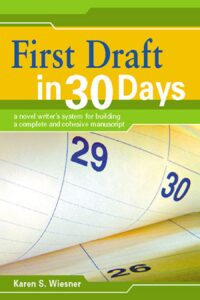 KW: Both of my Writer’s Digest books, First Draft in 30 Days and From First Draft to Finished Novel {A Writer’s Guide to Cohesive Story Building} work together perfectly, and those who have read and used both methods say the same. Used together, they really are like a well-oiled machine focused on productivity, high-quality and unending momentum. One thing From First Draft to Finished Novel really targets is the importance of working in stages. I can’t stress how crucial this is for all authors. In an ideal situation, a writer goes through the following nine stages to get a finished novel:
KW: Both of my Writer’s Digest books, First Draft in 30 Days and From First Draft to Finished Novel {A Writer’s Guide to Cohesive Story Building} work together perfectly, and those who have read and used both methods say the same. Used together, they really are like a well-oiled machine focused on productivity, high-quality and unending momentum. One thing From First Draft to Finished Novel really targets is the importance of working in stages. I can’t stress how crucial this is for all authors. In an ideal situation, a writer goes through the following nine stages to get a finished novel:
- Brainstorming
- Researching
- Outlining
- Setting aside the project
- Writing the first draft
- Setting aside the project
- Revising the first draft
- Setting aside the project
- Editing and polishing
(Incidentally, between my two books, I cover every single stage in-depth and step-by-step, so each aspect of writing a book is detailed from start to finish.)
A few words about why “setting aside the project” so many times is crucial: I believe a book is best if you give it time to “breathe” between these stages. Whatever fears you had about whether the story is working will dissolve after you’ve set the project aside for a good amount of time because it’s as if you’re coming into the work brand new. Allowing your projects to sit for a couple of weeks—or even months—will provide you with a fresh perspective. You’ll be able to evaluate if the story is really as solid as you believed it was when you finished it. All writers get too close to their outlines or manuscripts to really see them objectively. Distance gives you that objectivity and the ability to read your own work like you’ve never seen it before, so you can progress further with it. Another reason for setting projects aside between stages is that writers always reach a point where their motivation runs out, and they may simply want to get away from the story as fast as they can. Who wants to write a book you’ve just spent weeks or even months outlining? Who would want to revise a book you’ve spent weeks or months writing? With every single book, I get to rock bottom and I’m convinced that if I ever see the manuscript again, I’ll tear it to shreds. Setting it aside between the various stages the project goes through really gives me back my motivation for it. I’m always amazed at how much better I can face the project again when I haven’t seen it for a couple weeks or even a month or more. I fall in love with it again. The next stage in the process becomes easier, too, and that helps my writing to be much better.
Also, the more books I have contracted, the more I seem to need these breaks in-between stages. I need breaks even when I feel a project is working beautifully. If I put it on a back burner for an extended period of time (as long as I can possibly allow and still meet my deadlines), amazing things happen over the low flame. By the time I return to it, I find myself bursting with new ways to fix any problems I couldn’t resolve when I was too close to, and sick of, the project, and this also allows me to see more of those connections that make a story infinitely cohesive in terms of knitting your characters seamlessly to the plot and setting.
Another reason for working in stages is that I’m able to start brainstorming on upcoming projects sometimes years in advance. When it’s time to work on that project, I’m just raring to go. I have a ton of ideas and the motivation to get them all down will carry me through the outlining like a breeze. Because I’ve always got multiple books going at one time, each one in a different stage of the process, I’m constantly brainstorming on the projects in the back of my mind, analyzing them for any weaknesses and coming up with ways to improve them. That’s so crucial to the overall strength of your stories.
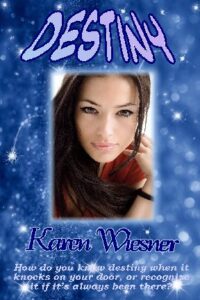 The most important reason for working in stages is because each of those steps is a layer that is added to the book, a layer that makes it stronger, richer, and—I have to say it—more cohesive.
The most important reason for working in stages is because each of those steps is a layer that is added to the book, a layer that makes it stronger, richer, and—I have to say it—more cohesive.
The only way to stay on track with your writing career is by working in stages and allowing yourself to come into each of them completely fresh and eager to add another layer to the project. On my website, you’ll find a page that includes my annual works in progress and accomplishments: http://www.angelfire.com/stars4/kswiesner/WIP.html
I encourage listeners to visit this page because you’ll really see how well these methods work.
In an average year, I outline, write and revise 5-10 novels and novellas, and I follow the annual goals you’ll see on my Work in Progress page. All of these are done in the stages I mentioned before. This year, I’m working actively on eight separate projects (with the greatest of ease!), each one in a different stage in the process. I love that I’m never doing the same thing in terms of outlining, writing and revising projects. I move from outlining one book, to revising a different one, to writing something altogether, layering and building and developing each book into something wonderful that I could never get if I wasn’t working in stages.
Using my own writing methods, everything in my career is planned well in advance, and I keep tweaking my schedule to make it as productive as it possibly can be. Most people think that I must work 24 hours a day based on my productivity. That’s the really amazing part of this whole method. I don’t have to. Working in stages, using an outline and goals, I work from eight o’clock to noon on weekdays and I can take off every weekend and most of the summer and yet I’m constantly moving forward. At this time, I’m working about a year ahead of my releases. In other words, I’ve already completed all of my 2013 releases and I’m deep into 2014 contracts.
Look for my next writing reference release from Writer’s Digest books coming May 2013: Writing the Fiction Series: The Guide for Novels and Novellas
What are the common pitfalls in a crafting a series, the best ways to get organized and plan it? The purpose of How to Write a Novel Series is to cover all things that need to be taken into consideration when writing a series and provide a one-stop resource for the who, what, where, when and why of this monumental endeavor. This helpful guide will give writers everything they need for creating their fiction series from dealing with story arcs and keeping things focused to characters, consistency, organization and more.
WD: What is the single most piece of advice you’d want as a new writer just starting out that you have learned the hard way?
KW: Actually, my advice is in multiple parts. I don’t believe there are absolutes in writing. There are so many writing trends, and I admit I find most of them silly. If anyone tells me when writing Never do this or Always do this, I immediately take a step backward. There’s only one rule in writing: If it works for the story, go with it. The only rules are the ones you enforce yourself. Don’t let anyone else tell you differently.
In the same vein, I realized early on in my career that there was little that a publisher could do for me that I couldn’t do just as well for myself. I’m a polished writer so I can make sure every book I turn in is the highest quality (and ensure that my editors hardly have to do anything at all for me) so in that way I’m my own editor. It requires dedication and commitment to my goals. I can’t blame anyone else if I’m not disciplined. I’m responsible for my own success (or failure) in that way. I can create my own, gorgeous covers. I can market my own books better than anyone else (though I love it when a publisher helps). Ultimately, I’ve even published my own books and the result is comparable to (in some cases, better than) any publisher I’ve ever worked with. My point is that an author is responsible for herself from start to finish. When I realized that, I knew I could make the rules, write my own ticket. I never expected that early in my career and it’s difficult to give up that perk now to work with a publisher who wants to control every single aspect of the work. I love working with a publisher who trusts me and can see my vision instead of the other way around.
So my advice to any author: Make your own rules and always be responsible for yourself in every aspect of your career.
Giveaway: Karen is giving away 3 autographed copies of From First Draft to Finished Novel {A Writer’s Guide to Cohesive Story Building}. Winners will be chosen from those who leave a comment to this interview on the blog.
Thanks, Karen, for being our guest today! If you have questions or comments for Karen, she’ll be with us all day. Thank you!

![image[1]](https://writtendreams.com/wp-content/uploads/2013/03/image1-300x118.png)


